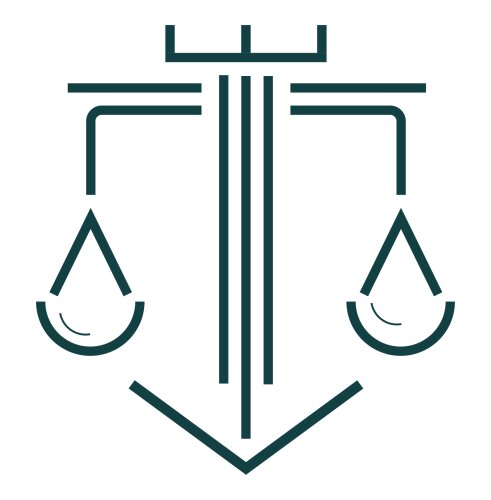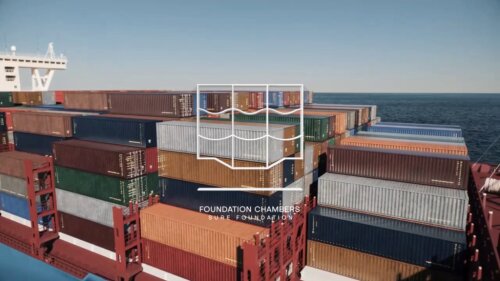About Transportation Law in Nigeria
Transportation law in Nigeria encompasses the regulations, statutes, and legal standards governing the operation of transportation modes, including road, rail, air, and maritime, within the country. Nigeria, with its expansive geography and significant population, relies heavily on a robust transportation system to connect regions and facilitate commerce. The legal framework seeks to ensure safety, equity, and efficiency in transportation while managing challenges posed by urbanization, infrastructure deficits, and technological advancements.
Why You May Need a Lawyer
Engaging a lawyer in transportation matters can be crucial for several reasons. Whether you're a transport business owner, a vehicle operator, or an everyday commuter, legal assistance may be necessary in situations such as:
- Resolving disputes related to vehicle accidents or damages.
- Navigating compliance with safety and environmental regulations.
- Handling licensing and registration issues for commercial transportation.
- Dealing with contracts and agreements related to transport services.
- Seeking compensation for personal injuries sustained in transport-related incidents.
- Addressing employment and labor disputes within the transportation industry.
- Understanding rights and liabilities in logistics and freight forwarding.
Local Laws Overview
Transportation laws in Nigeria are governed by several acts and regulations addressing various modes of transport:
- Road Transport: The Federal Road Safety Commission Act oversees vehicle registration, driver licensing, and road safety standards.
- Maritime Transport: The Nigerian Maritime Administration and Safety Agency (NIMASA) regulates maritime navigation, vessel registration, and safety at sea.
- Rail Transport: The Nigerian Railway Corporation Act provides for the management and maintenance of rail services.
- Air Transport: The Nigerian Civil Aviation Authority (NCAA) regulates air travel, including airline licensing, passenger rights, and safety protocols.
- Environmental Compliance: Various laws ensure transport operations conform to environmental standards to prevent pollution.
Frequently Asked Questions
What is the process for getting a driver's license in Nigeria?
Obtaining a driver's license involves passing a regulated driving test administered by the Federal Road Safety Commission after completing required driving lessons.
Can I drive in Nigeria with an international driver's license?
Yes, international driver's licenses are typically recognized in Nigeria for a limited period, usually three months, after which you should obtain a Nigerian license.
What should I do if I'm involved in a road accident?
Call the police and emergency services immediately, ensure safety and move vehicles if possible. Exchange information with the other party and seek legal advice if needed.
Who regulates the commercial transport sector in Nigeria?
The National Union of Road Transport Workers (NURTW) and government agencies oversee commercial transport operations, ensuring adherence to standards and regulations.
What are the regulations regarding public transport fares?
Public transport fares are influenced by governmental policies and market forces, with oversight by agencies ensuring fairness and transparency.
How can I appeal a traffic violation I believe was wrongly issued?
You can appeal traffic violations through the appropriate traffic management authorities, providing evidence or testimony to support your case.
What safety measures are compulsory for commercial transport vehicles?
Commercial vehicles must adhere to safety measures including regular maintenance, fitting safety belts, fire extinguishers, and compliance with load capacity regulations.
What liabilities do transport companies have in case of accidents?
Transport companies may be held responsible for injuries or damages resulting from negligence or failure to maintain safety standards.
Are there special laws for cargo and freight transport?
Cargo and freight are regulated by laws ensuring safe carriage practices, proper documentation, and liability for loss or damage during transit.
How does one report unsafe transportation practices?
Reports can be filed with the relevant regulatory bodies such as the Federal Road Safety Commission or the appropriate transport union.
Additional Resources
For more guidance, consider reaching out to the following resources:
- Federal Road Safety Commission (FRSC)
- Nigerian Maritime Administration and Safety Agency (NIMASA)
- Nigerian Civil Aviation Authority (NCAA)
- Nigerian Railway Corporation
- Transport Ministry Regional Offices
- National Union of Road Transport Workers (NURTW)
Next Steps
If you require legal assistance in transportation matters, consider the following steps:
- Identify the specific issue or dispute needing attention.
- Consult with a lawyer specializing in transportation law for expert advice.
- Gather all necessary documents and evidence related to your case.
- Contact relevant regulatory agencies if needed for compliance-related issues.
- Consider mediation or arbitration for dispute resolution before pursuing litigation.
Lawzana helps you find the best lawyers and law firms in Nigeria through a curated and pre-screened list of qualified legal professionals. Our platform offers rankings and detailed profiles of attorneys and law firms, allowing you to compare based on practice areas, including Transportation, experience, and client feedback.
Each profile includes a description of the firm's areas of practice, client reviews, team members and partners, year of establishment, spoken languages, office locations, contact information, social media presence, and any published articles or resources. Most firms on our platform speak English and are experienced in both local and international legal matters.
Get a quote from top-rated law firms in Nigeria — quickly, securely, and without unnecessary hassle.
Disclaimer:
The information provided on this page is for general informational purposes only and does not constitute legal advice. While we strive to ensure the accuracy and relevance of the content, legal information may change over time, and interpretations of the law can vary. You should always consult with a qualified legal professional for advice specific to your situation.
We disclaim all liability for actions taken or not taken based on the content of this page. If you believe any information is incorrect or outdated, please contact us, and we will review and update it where appropriate.















